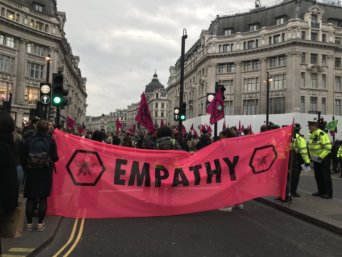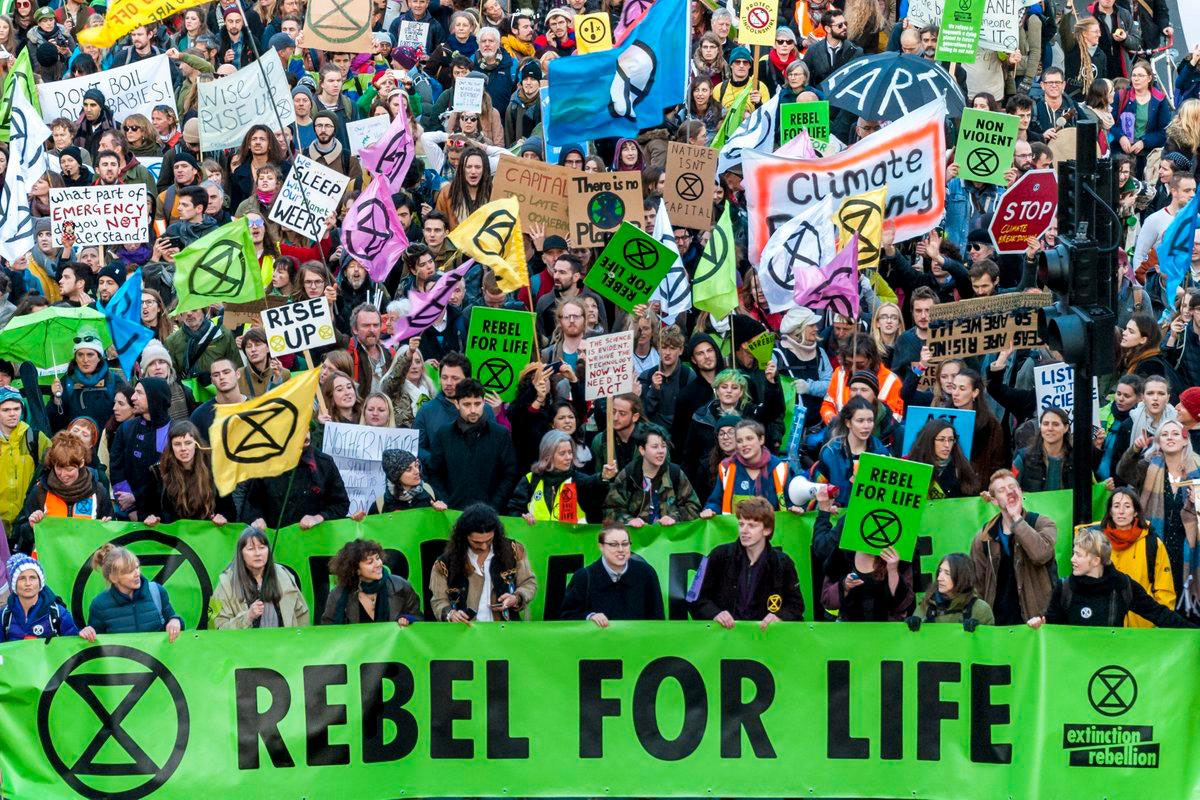- About
- Topics
- Story
- In-Depth
- Picks
- Opinion
- News
- Donate
- Signup for our newsletterOur Editors' Best Picks.Send
Read, Debate: Engage.
| topic: | Climate action |
|---|---|
| located: | United Kingdom, Germany |
| editor: | Gurmeet Singh |
Brexit drags on, or it doesn’t, depending on your view; but one thing that definitely continues is climate change.
The fact that the U.K. is so preoccupied with Brexit makes it even more important that people have woken up from this slumber to focus on the real issue: climate change. Climate change is not one issue, but the issue. As such, it should inform any Brexit deal likely to pass.
How will any trade agreements between the U.K. and the EU impact climate change? Will the U.K.’s net carbon output increase as a result of Brexit? Will the U.K. become more dependent on fossil fuels post-Brexit? If trains and coaches between the U.K. and Europe become less accessible after Brexit, will people be flying more between the two? But it seems that climate change is still seen, somehow, as a future problem. Not a current problem. Something that some unknown generation will have to deal with. Not us. Not yet. Relax. Hence, its absence from the wider Brexit debate.
I’ve written before about how problematic Extinction Rebellion is. Its problem with race and ethnicity seems to continue, with white middle-class protesters urging everyone to get arrested, and not quite understanding why a POC protester might not wish to subject themselves to institutionally racist policing and prison systems. It continues to have a problem with ableism; despite various differently-abled people critiquing its accessibility issues, it remains somewhat closed to their concerns. Despite accusations of classism, it hasn’t done much as a movement to mitigate its image as a middle-class playground, shutting out working class people and the precariat.
Indeed, this latter problem came into sharp focus this past week. XR protestors disrupted the London underground network at the Shadwell and Canning Town stations. Recordings emerged of commuters so enraged by the delayed tube services, they pulled the protesters down from the top of a train and attacked them, before being stopped by underground security.
Obviously, unequivocally, the violence is wrong. It shouldn’t have happened. There is a kind of madness in crowds, particularly one embedded in a daily routine such as working or waiting for a train. Indeed, watching the video, it’s startling just how much this crowd behaved like football hooligans, spontaneously coming together to beat up a rival.
Nevertheless, it’s also equally clear that disrupting public transport is a misguided action by XR activists. In its attempt to demonstrate just how ‘daily life’ contributes to a ‘business as usual’ mindset, where climate change is ignored, it went after the wrong target. Big businesses, oil companies, governments are the ones to be disrupted not ordinary people trying to get home or to work. It’s quite easy to see how XR has played into the hands of its critics who claim that the movement is totally divorced from working class people and issues.
But to be clear, it doesn’t justify violence.
I recently participated in several XR events, including the worldwide march and also its week-long camp of Berlin’s Kanzleramt. Despite my reservations about the movement, it felt like XR was the best thing going to bring climate change into greater public discussion. It’s my opinion that many of my own reservations about XR, as well as the perception that XR is divorced from working class people, possibly stem from its organisational structure. Many of the actions it carries out are decentralised: in that its various political actions are carried out in a bottom-up way.
Decentralisation is positive, of course, because it enables people to carry out actions they feel as important. However decentralisation also means that it’s possible for information not to percolate throughout the organisation, and also for the whole to be criticised for the actions of a few. It’s my opinion that decentralisation means not everyone in the organisation hears, understands or takes into account a variety of concerns. POC, differently-abled and working class people’s voices can continue to go unheard if there is not a wider discussion about how to include these voices.
Nevertheless, I was able to carry out actions that didn’t involve the threat of getting arrested. I had to make it clear I wasn’t willing to do this, explaining several times that the police might actually want to arrest me, even if I wasn’t doing anything illegal. My message did eventually get through.
XR is not a perfect organisation, but it is definitely the most influential at the moment in turning attention towards climate change. It’s rife with the problems I’ve described, but for it to be effective and inclusive, more POC and working class people are going to have to join it and change it. So this is a call for all manner of different and diverse voices to join XR and influence its actions in a more positive direction.
And yet, if it doesn’t include more voices, it will continue to be overshadowed by the very things it seeks to disrupt: big politics, pointless talking points, and Brexit.

